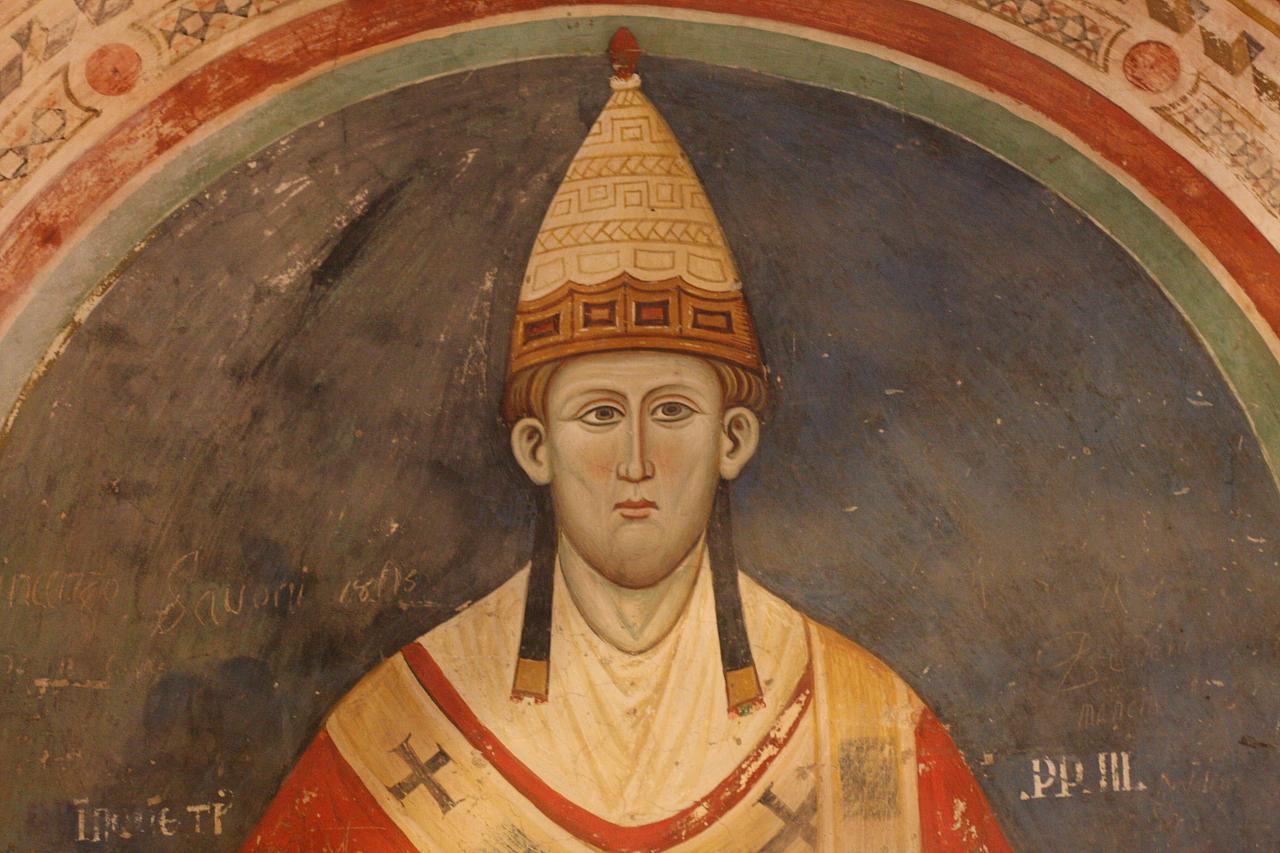Three months after the death of Henry VI, when his son and heir, Frederick II, was only four years old, there came to the papal throne Innocent III (r. 1198-1216), the greatest of all the medieval popes. Innocent played a major part in the politics of France, England, and the Byzantine Empire. He said that papal power was like the sun, and kingly power like the moon, which derives its light from the sun. While he granted that his own position was “lower than God,” he maintained that it was loftier than that of any other man.
A professional lawyer, Innocent was a practical man of affairs. He held the loftiest conception of the role of the church in the world, and of the pope’s role in the church. He legislated widely on matters quite unconnected with politics, and he favored reform of the church. However we evaluate his ambitions, he came closer than any pope before or after to making the papal monarchy a reality.
Determined to destroy the German-Sicilian combination, Innocent backed a WeIf educated in England, Otto of Brunswick, son of Henry the Lion, against Philip of Swabia, brother of Henry VI, who initially had the support of the German princes. Innocent revived the claim of Gregory VII that no emperor could rule without papal confirmation, while Philip argued that an emperor duly elected by the princes was emperor whether the pope approved or not.
To assure himself of papal support, Otto promised to give up all rights with regard to investiture that the emperors had salvaged from the Investiture Controversy. The kings of England backed their Welf nephew, Otto, while their enemy, King Philip Augustus of France, backed Philip of Swabia. The fighting continued until 1208, when Philip of Swabia was assassinated.
The German princes elected Otto IV, and he was crowned by the pope in 1209. He undertook to conquer Sicily, the very thing Innocent III wanted most to prevent. So in 1210 the pope excommunicated Otto and turned to the young Frederick Hohenstaufen, son of Henry VI.
Supported by the pope and given money by the French, Frederick reorganized the Hohenstaufen party in Germany. When Otto and the English were defeated at Bouvines by the French (1214), Frederick’s position became more secure. Innocent died in 1216, and Frederick II soon gave the papacy more trouble than even Henry IV had.

